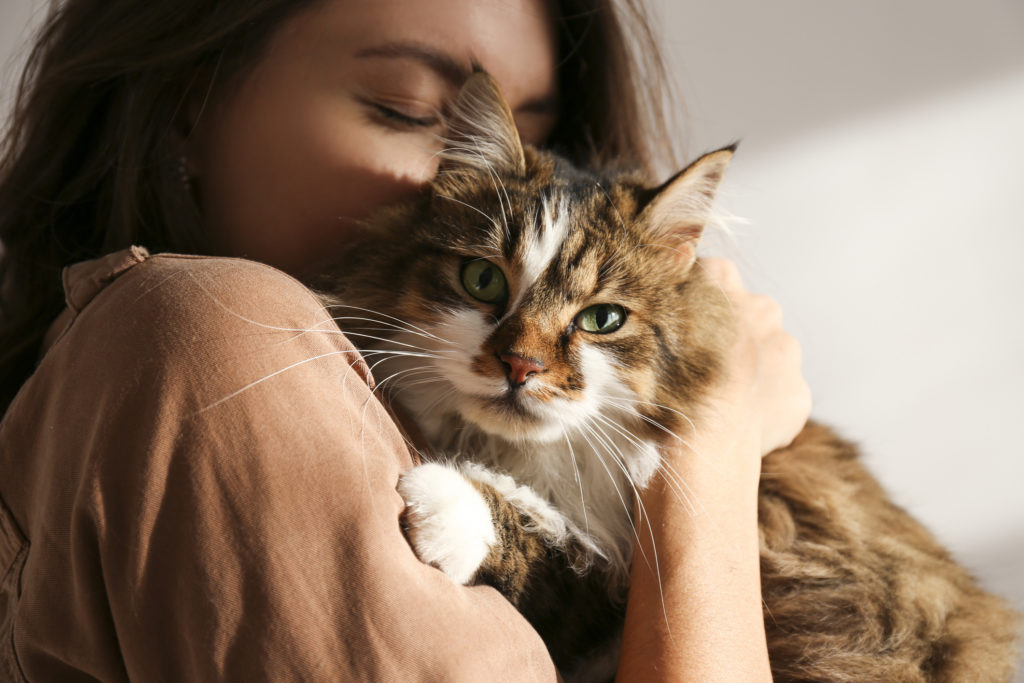
We love and care for our pets every day, of every month of the year (maybe not every hour of the day when they chew something they shouldn’t have!) but during April and May we celebrate National Pet Month, raising awareness of responsible pet ownership in the United Kingdom. With over 3 million households getting a new pet since the start of the pandemic, there may be many unanswered questions about the best way to look after them!
The #NationalPetMonth campaign runs from April to May every year, and this year we are giving you the scoop (of biscuits) of the different nutritional needs for the different life stages of cats and dogs, because not every bowl is the same.
Feeding Puppies and Kittens
Most puppies will still have a growth period from 8 months through to 24 months depending on the breed, and kittens are often fully grown around 10-12 months. While it may not be a long time for us, it is a very busy time for them! Not only are they settling into their new homes away from littermates, their immune system is working overdrive to develop, all at the same time they are being exposed to new things (potentially infectious!) while in a new environment and trying to grow into their paws.
Because of this, both puppies and kittens need a diet full of antioxidants, essential amino acids and fatty acids for all their development needs. If the diet is unbalanced or is of a poor quality, this can have lifelong consequences for them. The levels of proteins, calcium and phosphorus for a growing puppy are different to the adult dog which is why they should be fed something specific during this crucial growth phase.
Due to the small stomach size of these adolescent animals, they need to be fed small meals often to keep them fueled for growing and all they play! This is why they are so calorie dense in every bite.
Another (unfortunate if you have cream carpets) known issue with those younger puppy tummies is that they are prone to upset gastrointestinal problems where digestibility, food volume and density, and the type of fibres all play a role in a healthy gut.
Due to the rapid growth phase puppies and kittens undergo within the first year of their life, it is best to weigh them every week and adjust the amount of food and the frequency of feds to accommodate their nutritional needs. For kittens, a kitchen scale may give a more precise weight.
Adult Pet Foods
Moving your pets to a formulated adult diet after they have moved through their younger years and before they move into the golden ones is very important.
AAFCO, or Association of American Feed Control Officials has a very specific list of guidelines and regulations to what should be in a puppy food versus an adult food, and it really highlights their dietary changing needs. At a glance, here is an example of the difference in requirements:
- Protein – 22% for puppy food and 18% for adult dog food
- Fat – 8% for puppy food and 5% for adult dog food
- Calcium – 1% for puppy food and 0.6% for adult dog food
- Phosphorus – 0.8% for puppy food and 0.5% for adult dog food
- Sodium – 0.3% for puppy food and 0.06% for adult dog food
As most adult pets have been castrated or spayed, their energy needs change with that too and they can often put on weight. Adult diets are formulated to be less calorie heavy than a highly energy dense growth food. Adult foods often have more “fillers” in them to help your pet feel fuller for longer as they move to a less frequent feeding regime.
Adult diets are also designed around dental health too (kibble that has a specific design which helps “brush” the teeth as they chew), helping to keep them in tip-top shape.
Senior Years
The correct nutrition throughout your pet’s life can set them up for life – preventing disease and also managing different disease processes too. It is no secret that everything slows down in the senior years (both us and our pets!) and this may impact what they eat too – something friendly for their liver, easy going on their kidneys, and even making sure their bladder stays healthy!
One of the most noticeable things with senior diets is the need to accommodate that the aging causes a reduction in muscle mass and an increase in body fat, so protein and fat levels must be taken in account for this. Often joint supplements are built into the diets too.
Unlike puppy or kitten diets and the differences with adult diets regulated by AFFCO, there is no standardisation of what is required to be in a “senior” diet, and as older pets often have other health issues developing, they can often be fed an adult diet until it is recommended that they are fed one more specific to any progressive health conditions.
As always, if you have any questions at all about your pet’s developmental needs while they are growing, or how to look after them in their senior years, then speak to your veterinary nurse or veterinary surgeon for advice.
